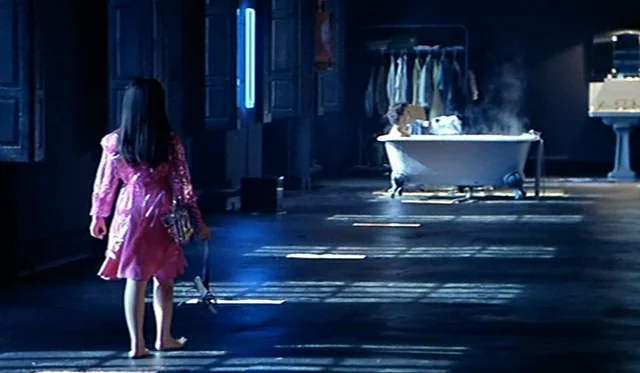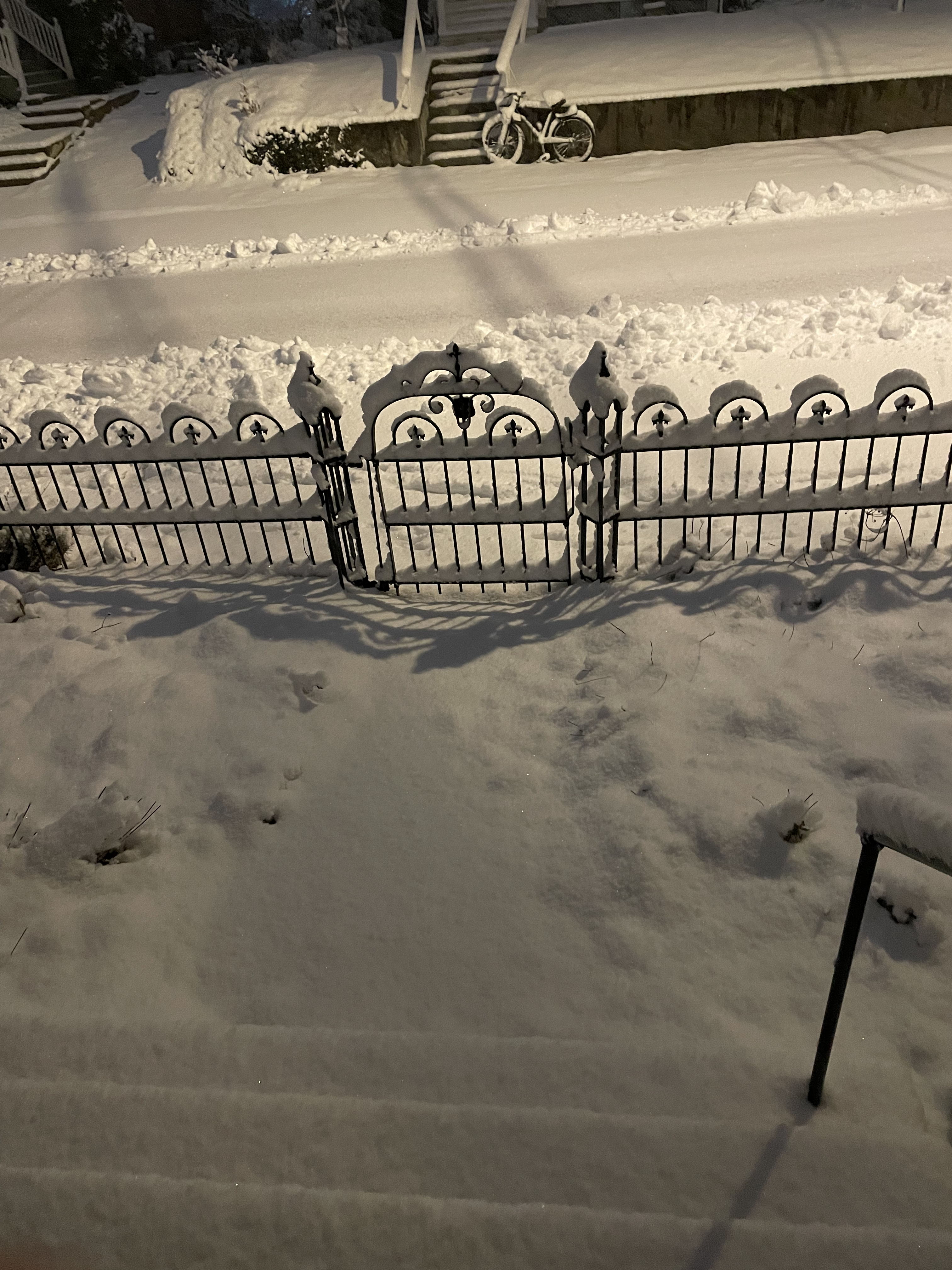Rocket Force!

Mr. Xi inspected the Rocket Force in Beijing in 2016.
Rocket Force sounds like a ‘60s puppet show, like Fireball XL-5.
Ezra Klein Says What Many Democrats Are Thinking
Ezra Klein is just the newest public voice calling for Joe Biden to do the right thing and withdraw from the presidential race because of the perception of his age, frailty, and seeming cognitive decline. The likelihood of Trump prevailing is too high to risk, he says. How would that work? He has to be convinced to do it, and then the Democrats would have to hold a real, old-time national convention. Senator Charles Sumner wrote in a note to the delegates to the Republican convention that selected Abraham Lincoln that their ‘duty it will be to organize victory’, which is what Democrats should aspire to.
Here’s Klein:
Step one, unfortunately, is convincing Biden that he should not run again. That he does not want to risk being Ruth Bader Ginsburg — a heroic, brilliant public servant who caused the outcome she feared most because she didn’t retire early enough. That in stepping aside he would be able to finish out his term as a strong and focused president, and people would see the honor in what he did, in putting his country over his ambitions.
The people whom Biden listens to — Barack Obama, Chuck Schumer, Mike Donilon, Ron Klain, Nancy Pelosi, Anita Dunn — they need to get him to see this. Biden may come to see it himself.
I take nothing away from how hard that is, how much Biden wants to finish the job he has started, keep doing the good he believes he can do. Retirement can be, often is, a trauma. But losing to Donald Trump would be far worse.
Let’s say that happens: Biden steps aside. Then what? Well, then Democrats do something that used to be common in politics but hasn’t been in decades. They pick their nominee at the convention. This is how parties chose their nominees for most of American history. From roughly 1831 to 1968, this is how it worked. In a way, this is still how it works.
I’m going to do a whole episode on how an open convention works, so this is going to be a quick version. The way we pick nominees now is still built around conventions. When someone wins a primary or a caucus, what he actually wins is delegate slots. How that works is different in different states. Then they go to the convention to choose the actual nominee.
The whole convention structure is still there. We still use it. It is still the delegates voting at the convention. What’s different now than in the past is that most delegates arrive at the convention committed to a candidate. But without getting too into the weeds of state delegate rules here, if their candidate drops out, if Biden drops out, they can be released to vote for who they want.
After adroitly praising Kamala Harris while throwing her under the bus, Klein suggests a roster of likely candidates – Gretchen Whitmer, Wes Moore, Jared Polis, Gavin Newsom, Raphael Warnock, Josh Shapiro, Cory Booker, Ro Khanna, Pete Buttigieg, Gina Raimondo, Alexandria Ocasio-Cortez, Chris Murphy, Andy Beshear, J.B. Pritzker – putting my favorite, Whitmer, at the top of the list.

Governor Gretchen Whitmer
He closes with this:
So yes, I think Biden, as painful as this is, should find his way to stepping down as a hero. That the party should help him find his way to that, to being the thing he said he would be in 2020, the bridge to the next generation of Democrats. And then I think Democrats should meet in August at the convention to do what political parties have done there before: organize victory.
Iyad el-Baghdadi - Violence
Violence is a weak person’s idea of what power is. | Iyad el-Baghdadi, Restoring the Past Won’t Liberate Palestine

Word of the Day - Feme Sole
And an example from the news hole.
feme sole
/ˌfem ˈsōl/
noun
Historical; Law
noun: feme sole; plural noun: femes soles; noun: femme sole; plural noun: femmes soles
- a woman without a husband, especially one who is divorced.
Origin

early 17th century: from Anglo-Norman French
As the historian Sara Cedar Miller has pointed out, the deed that cemented Ms. Gloucester’s control over the West 88th Street lot reflected a wariness of property laws that favored husbands. The deed specifically precluded the possibility of a claim by her husband — declaring that she held title “forever and free clear and discharged of and from the debts obligation and control of her said husband, the said James N. Gloucester, and in like manner and to all intents and purposes as if she were a feme sole_._”
In Anglo-American law, the term “feme sole” refers to a woman who is widowed, divorced, never married or no longer legally subordinate to a husband. Ms. Gloucester’s lawyer may have used the phrase as a reference to New York’s recently passed married women’s property act. But this assertion of independence would have had a personal meaning for his client.
| Brent Staples, The Lost Story of New York’s Most Powerful Black Woman
Quote of the Moment - Warren Buffett on Class Warfare
There’s class warfare, all right, but it’s my class, the rich class, that’s making war, and we’re winning. | Warren Buffett

Word of the Day - Cinéma du Look
And an example from the news hole.

Diva, by Jean-Jacques Beineix
from Wikipedia:
Cinéma du look (French: sinema dy luk) was a French film movement of the 1980s and 1990s, analysed, for the first time, by French critic Raphaël Bassan in La Revue du Cinéma issue no. 449, May 1989, in which he classified Luc Besson, Jean-Jacques Beineix and Leos Carax as directors of the “look”.
These directors were said to favor style over substance, spectacle over narrative. It referred to films that had a slick, gorgeous visual style and a focus on young, alienated characters who were said to represent the marginalized youth of François Mitterrand’s France. Themes that run through many of their films include doomed love affairs, young people more affiliated to peer groups than families, a cynical view of the police, and the use of scenes in the Paris Métro to symbolise an alternative, underground society. The mixture of ‘high’ culture, such as the opera music of Diva and Les Amants du Pont-Neuf, and pop culture, for example the references to Batman in Subway, was another key feature.
A parallel can be drawn between these French filmmakers' productions and New Hollywood films including most notably Francis Ford Coppola‘s One from the Heart (1981) and Rumble Fish (1983), Rainer Werner Fassbinder‘s Lola (1981), as well as television commercials, music videos and the series Miami Vice. The term was first defined by Raphael Bassan in La Revue De Cinema.
“Diva” was considered a high-water mark in the movement known as the cinéma du look, a high-sheen school of French film often centered on stylish, disaffected youth in the France of the 1980s and ’90s. A film with all the saturated color and gloss of a 1980s music video, it was an art-house hit that became a cult favorite for the initiated.
| Alex Williams, Wilhelmenia Wiggins Fernandez, the Diva of ‘Diva,’ Dies at 75
Word of the Day - Boysober
And an example from the newshole.

boysober
noun
not talking to a boy, talking about boys, or dating a boy.^[This is from Urban Dictionary, but contradicts the quote, below.]
Ms. Woodard explained that she intended “boysober” as an all-encompassing term, one that meant abstaining from romantic relationships with people of any gender.
| Marisa Charpentier, ‘Boysober’ Is Celibacy With a Rebrand
Word of the Day: Cheffing
cheffing
/ˈSHefiNG/
noun
The activity of working as a chef.
I came to cheffing fuelled by a passion for food
Then there is the issue of control — and the back-seat cheffing it perpetuates. Like the sort that Alex Jung tries their best to curb when their partner borrows their KitchenAid mixer or endeavors to riff on cake recipes in their Ridgewood, Queens, home. “I have this tendency to get high and mighty about baked goods,” Mr. Jung, 30, said. “I need to let go of the reins a bit.”
| Ella Quitner, I Love You, but I Hate Your Cooking
Word of the Day: Ennui
And an example from the newshole
en·nui
/änˈwē/
noun
a feeling of listlessness and dissatisfaction arising from a lack of occupation or excitement.
“he succumbed to ennui and despair”
Dating App Users Try Algorithm Hacks to Get More Matches (and Find Love?) | Callie Holterman
Khaled Alshawi, 32, has used Hinge and Grindr on and off for about five years. He remembers a time when he could reach out to as many people as he wanted per day, he said, but that number has been capped on both apps. He ended up buying subscriptions and then leaving the apps altogether and meeting a partner in real life. Several of his friends remain on free versions of the apps, he said, convinced that they will hit on some trick that will allow them to circumvent the paywall.
That may be because paywalls and algorithms are a more satisfying target for one’s ire than general romantic ennui, said Carolina Bandinelli, an associate professor of media and creative industries at the University of Warwick who has conducted ethnographic research on dating app users.
Dating apps suggest to users that they will be able to use algorithms to “reduce the mess of love,” Dr. Bandinelli said. When that inevitably doesn’t happen — love is messy by nature! — users can become angry and try to gain the upper hand.
“The ‘hacking’ is a way in which we engage with the algorithm — we try to reveal its secrets or take advantage,” she said.
Word of the Day: Wishcasting
Noun. wishcasting
The act of interpreting information or a situation in a way that casts it as favorable or desired, despite the fact that there is no evidence for such a conclusion; a wishful forecast.
2020, Sarah Longwell, What Did They Think Would Happen?, in The Bulwark:
We have an incurious narcissist of a president who was warned over and over by his advisors about an imminent pandemic. He ignored them. Then he engaged in “one day it will just disappear” wishcasting instead of spearheading a coordinated federal response.
2024, Joe Fassler, Cultivated Meat’s Empty Promise of Revolution, in The New York Times:
As familiar as cultivated meat’s bumpy trajectory may be, one thing stands out: The industry, and in particular, its two biggest players, Upside Foods and Eat Just, built expensive facilities and pushed for government approval before they had overcome the most fundamental technological challenges.
At a cellular agriculture summit last month at Tufts, a biotech expert, Dave Humbird, said the industry had “wishcast” its way to market readiness, something he’s never seen work. His prediction for the future of cultivated meat: “R & D will go back into academia. And that’s probably a good thing.”
His extensive analysis in the peer-reviewed journal Biotechnology and Bioengineering found that the costs of production at cultivated meat facilities would “likely preclude the affordability of their products as food.”
Word of the Day - Storge
And an example from the news hole
ˈstɔːɡiː
noun
archaic
natural or instinctual affection, as of a parent for a child
…
In C.S. Lewis’s The Four Loves, he talks through the four classical types of love: storge, philia, eros, and caritas, and storge was the one I’d never really seen discussed (let alone praised) before. You could translate it as fondness, and it’s easy for that to sound trivial or sentimental.
One way I think about storge if that it’s the kind of love you have for that one particular tree that sits three blocks from your house and marks the turn onto your street. It’s not that that tree is the tallest or most beautiful—it might not even be your favorite kind of tree in general—but it is your tree in a way no other tree is.
| Leah Libresco Sargeant, Festivals of Particularity
Word of the Day: Schrödinger's account
How much of your workday is taken up with tasks like the following: filling in a lengthy online form, which crashes just as the finish line draws near; spending hours trying to cancel an online subscription; coming face-to-face with the dreaded “Schrödinger’s account”: you try to sign into an it using your email address, only to be told there is no such account; you try to create a new account with the same email address, and you are told one already exists. | Jamie Bartlett, Techno-admin will ruin your life
Word of the Day: Destination Dupes
And an example from the newshole.
A destination “dupe” is when a traveler seeks a more budget-friendly option that still retains the general vibes of the more expensive option. | CheapAir.com
How to Save Money Traveling in 2024 | Elaine Glusac:
Travelers seeking to avoid over-touristed and pricey places have long sought less pressured and cheaper alternatives, a trend newly popularized on TikTok as “destination dupes.”
In that vein, rather than viewing the cherry blossoms of Kyoto, Japan, or Washington, D.C., consider Modesto, Calif., the gateway to farming country in the Central Valley, during almond blossom season. In February and March, the region’s 1.5 million acres of almond trees burst with pink and white flowers. Visitors can take an almond blossom drive with an audio guide ($14.99) and listen to a Spotify playlist devoted to spring from the Modesto Symphony Orchestra.
Word of the Day: Jus Soli
Jus Soli
noun.
jus so·li -ˈsō-ˌlī, -lē
a rule of law that a child’s citizenship is determined by his or her place of birth.
Etymology. Latin, right of the soil.
Word of the Day: Affrilachian
Affrillachian

/ˌæf.rəˈlætʃ.ən/
adjective
relating to or characteristic of Black people, particularly artists and writers, living in the Appalachian Mountains region of eastern North America.
In Poet Crystal Wilkinson Explores Black Appalachia Cooking in Her New Book, Korsha Wilson writes,
“The dominant narrative is that there’s^[should be ‘there are’.] no Black people here,” said Frank X Walker, a playwright, professor at the University of Kentucky and co-founder of the Affrilachian Poets Society. Mr. Walker popularized the term Affrilachian to refer to people of African descent from the region, and to foster a community “to celebrate the fact that we’re here.”
It’s not a new topic for Ms. Wilkinson, who has explored Affrilachian life in poetry and fiction, including in her short story “Endangered Species: Case 47401,” which won the O. Henry Prize in 2021. In her work, food is part of the story, showing the breadth of Black Appalachian life and cooking as evidence of love and familial duty in simple, unflinching terms.
Half of what makes our bygone happy days happy is what we remember of them. The other half is what we forget.
| James Poniewozik, ‘Happy Days’ Got Us Unstuck in Time
Reworked: The Key to Effective Workplace Transparency? Privacy
In The Key to Effective Workplace Transparency? Privacy, I explore the balancing act between workplace transparency and privacy:
Engagement at work is the center of the relationship between a company and employee and is reflected in employee retention, motivation and positive business culture. In this article, we will explore the balancing act between open communication — the information shared publicly between employers and their employees — and what might be better kept outside the glaring floodlights of total transparency.
I draw attention to the inherent surveillance built into transparency:
Almost every communication tool has two sides. First, the primary function — such as Salesforce being used for the selling process — but also a secondary capability: keeping track of what people do at any time of the workday. In the name of “productivity,” companies have set up surveillance systems:
I would like to erase the word ‘productivity’ from our discussions. Oftentimes when we’re talking about productivity, it’s coming down to monitoring… we’re tracking how many times have you logged in, how many emails you’ve sent, are you green on Slack? That idea is rooted in the industrial revolution; it’s not modernized to represent actual business results or employee output. Do I believe that employees should be measured on results? Absolutely. Do I think productivity is the best way to think about it? No. To me, ‘aligned,’ ‘motivated,’ and ‘clear on results and impact’ are far more important than ‘productive.’
In particular, I drew on research from Ethan Bernstein:
In 2014, organizational psychologist Ethan Bernstein published breakthrough research on the need to create ‘zones of privacy’ within open environments after determining that fully transparent organizations leave employees feeling vulnerable and exposed. As he characterized his findings,
Here’s the paradox: For all that transparency does to drive out wasteful practices and promote collaboration and shared learning, too much of it can trigger distortions of fact and counterproductive inhibitions. Unrehearsed, experimental behaviors sometimes cease altogether. Wide-open workspaces and copious real-time data on how individuals spend their time can leave employees feeling exposed and vulnerable. Being observed changes their conduct. They start going to great lengths to keep what they’re doing under wraps, even if they have nothing bad to hide. If executives pick up on signs of covert activity, they instinctively start to monitor employee behavior even more intensely. And that just aggravates the problem.
I think it’s a good piece.
Here are other articles from me at Reworked.
A Few Words at the Wedding of Conrad Boyd and Lydia Yeakel
October 1, 2023, Garrison, New York
This past week, I turned seventy. Seventy years. I guess I have been asked to speak because age is meant to confer wisdom, or at least perspective. Or just a trove of words to say, perhaps.
But I will confess to having little new to add about the human condition that hasn’t been said before, so I will borrow some thoughts in the pursuit of what might pass as understanding and guidance.
Here’s my start then, from Simone De Beauvoir:
In old age we should wish still to have passions strong enough to prevent us turning in on ourselves. One’s life has value so long as one attributes value to the life of others, by means of love, friendship, indignation, compassion.
That perhaps explains why I am so happy to have Conrad and Lydia living across the street from Sarah and me. And now Keenan, too. These young people make my life more valuable, in De Beauvoir’s sense, and keep me younger, too.
In exchange, I try to make them older and gain value from De Beauvoir’s compassion, love, friendship, and yes, indignation. There are many reasons to be indignant, in our time.
Also in the past week, Sarah and I celebrated 39 years of marriage. One thing I learned from our time together is this: as Emily Berry wrote,
Relationships don’t succeed because you like holding hands, but because you like looking in the same direction.
I know that Lydia and Conrad are like that, looking in the same direction. And, yes, some hand-holding, too.
And after 40 years together with Sarah, I would cast our thoughts 40 years ahead. Imagine Conrad catching sight of Lydia out of the corner of his eye, then, just as Wendell Berry captures in this poem, The Wild Rose:
The Wild Rose | Wendell Berry
Sometimes hidden from me
in daily custom and in trust,
so that I live by you unaware
as by the beating of my heart,suddenly you flare in my sight,
a wild rose blooming at the edge
of thicket, grace and light
where yesterday was only shade,and once more I am blessed, choosing
again what I chose before
So, Conrad and Lydia, I can wish you no better than that, my beloved children.
Every journalist who is not too stupid or full of himself to notice what is going on knows that what he does is morally indefensible. He is a kind of confidence man, preying on people’s vanity, ignorance, or loneliness, gaining their trust and betraying them without remorse.
| Janet Malcolm, The Journalist and the Murderer
The suspended anxiety of this year is not entirely unfamiliar to me. I have fallen through the cracks of life before. I’ve come to think of these times of life as wintering, a season outside the usual ebb and flow, when the comforting bustle of everyday society falls out of reach. Most of us have been to this place. We arrive there in the wake of illness, depression or bereavement; that darkness may yawn open during major life events like divorce or job loss. However we come to it, wintering is usually involuntarily, lonely and bitterly painful.
This year has brought us into close contact with loss. Many winters have come all at once. But within these winters, there is the seed of something necessary. We tend to imagine that our lives are linear, but they are in fact cyclical. As we grow older, we pass through phases of good health and ill, of optimism and deep doubt, of freedom and constraint. There are times when everything seems easy, and times when it all seems impossibly hard. Each time we endure the cycle, we learn from the previous round, and we do a few things better. This is how wisdom is made.
| Katherine May, Wasn’t It Winter Just Yesterday?
Working Toward Life Balance
An interesting twist on the work/life balance meme caught my eye:
Mitch Joel, The Myth Of Work Life Balance
Don’t do it. There is no such thing as work/life balance. By even saying there is such balance, you’re making an internal agreement that work is not a part of a healthy life, and I just don’t buy it. Like you, I put a good chunk of my waking hours against the work I do. I can’t accept that it doesn’t constitute an important and real part of my life. In the end, I’m not looking for work/life balance… I’m looking for life balance.
I have said for years that I’ve given up on finding a balance in life, I’m going for depth instead. But it’s not really the case. It’s just that I am looking for something larger.
I agree with the spirit of Joel’s post, in which he deftly turns the work/life balance on its ear. But his rejoinder is all wrong for me.
He’s right when he says we need balance in our lives, including whatever it is we are doing as ‘work’. But his three categories — personal, business, and community — simply create a slightly more complex balancing act, and don’t go far enough. It’s too small.
Instead, consider the contour of a well-ordered humanism laid out by Claude Levi-Strauss:
A well-ordered humanism does not begin with itself, but puts things back in their place. It puts the world before life, life before man, and the respect of others before love of self.
So, for me, balance can’t be self-centered, it must be world-centered.
We can’t find balance while the world is so out of balance. And any balance must come from putting the world and its living creatures before mankind, and then others before ourselves. Yes, those others include community and family, but can’t limited to only those that are closest to us. We must put all others before oursleves.
I don’t mean that we need to hand over all our worldly possessions to the first homeless person on the street. But we need to put the collective interests of the world ahead of our own ease and comfort. That means trying to correct injustice, diminish our carbon footprint, work to strengthen social ties, and so on.
We are obliged to accept the curtailing of our personal freedoms — the right to pollute, to waste, to look away — for the sake of helping to balance our collective relationship to each other and the world.
In the sphere of our relationships with others it is not enough to be available, or to make time for others: we have to respect others’ needs, and to work to gain their respect, in return.
It’s the high holidays, New Years is around the corner, and the self-help marketing machinery is going full-bore. Millions of people will buy exercise equipment and health club memberships, hire firms to clean up their closets, get liposuction, and acquire shiny cross country ski equipment: all chasing the dream of self-perfection.
All of that is the lesser path.
It’s fine in a way, but if those acts pull us away from the primary obligations we have to the Earth and its inhabitants, then it is just narcissistic play.
So the real myth of work/life balance is the subtext that Joel has accepted implicitly: that balance — happiness and fulfillment — can be achieved if we restrict our attention to our immediate circle of friends and local community. It’s wrong, and untrue. We can start there — where we live and who we live with — but we have to be aware of the larger circle we are connected to.
If there is something universal we can learn from our experience in social networks, it is that we are only a few connections away from everyone in the surprisingly small world we live on.
We must commit ourselves to a well-ordered humanism, and if we are ever to find balance, it must mean a balance for all.

